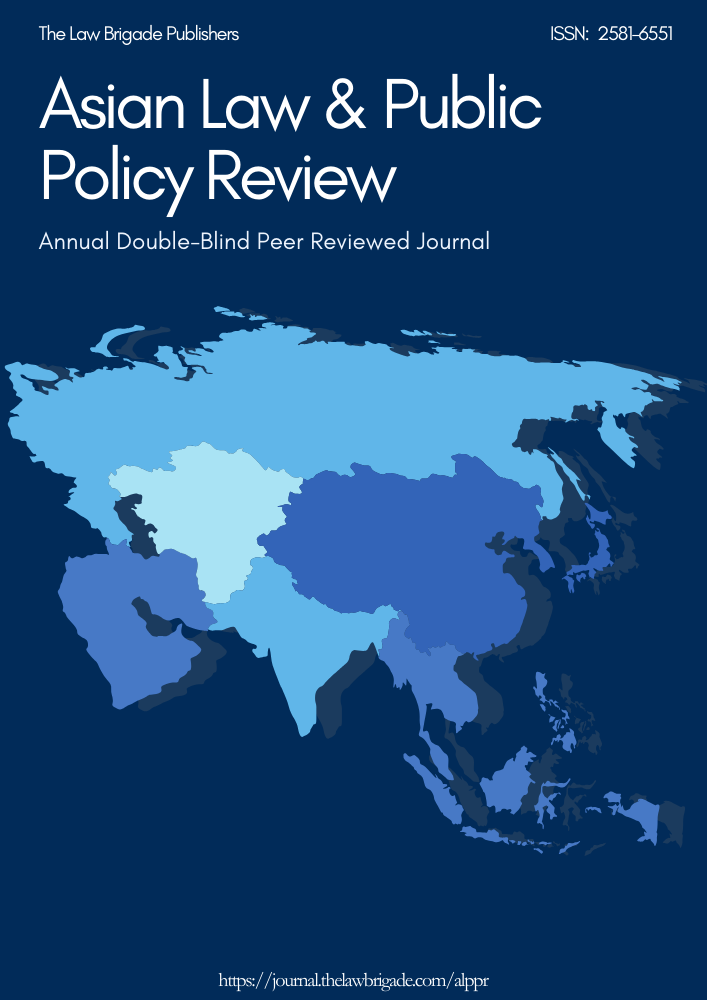Gender-Neutral Rape Laws: Addressing the Long-Standing Conundrum in Indian Laws
Keywords:
Rape Laws, Gender-Neutral Laws, Indian Legislation, EqualityAbstract
The prevailing perception of rape laws predominantly revolves around male perpetrators and female victims, reflecting traditional gender norms and stereotypes. However, in recent years, the urgent need for a gender-neutral framework in addressing sexual offenses has gained significant attention. This paper aims to explore the complexities and potential implications of implementing gender-neutral rape laws in contemporary societies.
The first section reviews the historical context of rape legislation, illustrating its gender-biased roots and its impact on survivors of all genders. Subsequently, the paper analyzes the evolving societal understanding of gender, dismantling the binary perspectives and acknowledging the experiences of individuals beyond the male-female spectrum. The role of gender neutrality in fostering inclusivity, breaking stereotypes, and promoting equal rights is emphasized. Drawing upon case studies and legal analyses from diverse jurisdictions, the paper highlights the challenges faced when transitioning towards a gender-neutral approach to rape laws. Issues such as victim-blaming, cultural resistance, and the safeguarding of due process are examined, presenting a comprehensive view of the multifaceted obstacles.
Furthermore, the research delves into the potential benefits of gender neutrality in rape laws, including enhanced reporting and prosecution rates, increased protection for all survivors, and the establishment of a more just legal system. The paper also addresses concerns regarding false accusations and the importance of balanced measures to protect the rights of both accusers and the accused. While acknowledging the complexity of this transformation, the paper ultimately advocates for an inclusive, gender-neutral approach that upholds the principles of equality and justice for all individuals, regardless of gender identity or expression.
Downloads
Downloads
Published
Issue
Section
License

This work is licensed under a Creative Commons Attribution-NonCommercial-ShareAlike 4.0 International License.
License Terms
Ownership and Licensing:
Authors of research papers submitted to any journal published by The Law Brigade Publishers retain the copyright of their work while granting the journal specific rights. Authors maintain ownership of the copyright and grant the journal the right of first publication. Simultaneously, authors agree to license their research papers under the Creative Commons Attribution-ShareAlike 4.0 International (CC BY-SA 4.0) License.
License Permissions:
Under the CC BY-SA 4.0 License, others are permitted to share and adapt the work, even for commercial purposes, provided that appropriate attribution is given to the authors, and acknowledgment is made of the initial publication by The Law Brigade Publishers. This license encourages the broad dissemination and reuse of research papers while ensuring that the original work is properly credited.
Additional Distribution Arrangements:
Authors are free to enter into separate, non-exclusive contractual arrangements for distributing the published version of the work (e.g., posting it to institutional repositories or publishing it in books), provided that the original publication by The Law Brigade Publishers is acknowledged.
Online Posting:
Authors are encouraged to share their work online (e.g., in institutional repositories or on personal websites) both prior to submission and after publication. This practice can facilitate productive exchanges and increase the visibility and citation of the work.
Responsibility and Liability:
Authors are responsible for ensuring that their submitted research papers do not infringe on the copyright, privacy, or other rights of third parties. The Law Brigade Publishers disclaims any liability for any copyright infringement or violation of third-party rights within the submitted research papers.


